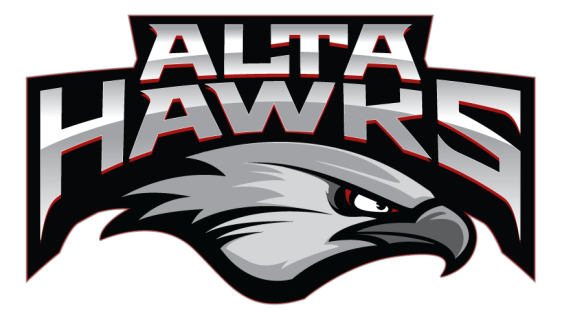Advanced Placement
Concurrent Enrollment
| Course (Course Code) | Course Description | Credits | Prerequisite | Tuition | Additional Resource Fees paid to SLCC (Books, etc.) | Grades allowed to register | |
| ACCT 1110 (98001) | Accounting 1 | An introduction to the concepts and methods underlying the preparation of financial statements using generally accepted accounting principles. Topics covered include the accounting cycle, cash and inventories. | 3 | $15 | $32.50 | 11-12 | |
| ACCT 1120 (98361) | Accounting 2 | Continuation of concepts & methods used in preparation of financial statements using generally accepted accounting principles. Includes long-term assets, liabilities, business entities, statement of cash flow & financial statement analysis. | 3 | ACCT 1110 | $15 | $32.50 | 11-12 |
| ART 1010 (10671) | Exploring Art | This course is a study of the development of lettering throughout history. Several historic alphabets are studied and written. Various writing fluids and papers are explored. An introduction to bookmaking is part of this course. (Extra cost for supplies) | 3 | $15 | 10-12 | ||
| ART 1020 (10451) | Intro to Drawing | An introductory drawing course. Line, shape, perspective and light logic will be discussed. Using these techniques, students will develop their drawing skills. | 3 | $15 | 9-12 | ||
| ART 1050 (10771) | Intro to Photography | Examines the important contributions of photography and photographers in the field of art. Students will learn basic operations of a digital or film SLR camera (which is required for course), perform shooting assignments, learn visual rules of composition, and conduct research. | 3 | $15 | 9-12 | ||
| ART 1060 (10571) | History/Art Lettering | A study of the development of lettering throughout history. Several historic alphabets are studied and written. Various writing fluids and papers are explored. An introduction to bookmaking is part of this course. | 3 | $15 | 11-12 | ||
| ART 1120 (10401) | Design | Students will be introduced to the basic principles (balance, rhythm, emphasis, unity) and elements (line, shape, texture, space, size, value, color) of design. | 3 | $15 | 9-12 | ||
| BIOL 1010 | Intro to Biology | Introduction to Biology for non-science majors. A survey of living diversity from bacteria to plants and animals. Introduces cell structure and physiology, inheritance, evolution, and classification. Prerequisite: ENGL 0900 w/C grade or better or appropriate placement score. | 3 | $15 | 11-12 | ||
| BUS 1010 (83081) | Intro to Business | Explores the world of business, showing how each of us is connected to business personally, professionally, and how business connects us culturally and socially. | 3 | $15 | $62.50 | 10-12 | |
| CHEF 1110 (87511) | Food Services and Sanitation | Develop an understanding of basic principles o sanitation and safety. Be able to apply them in food service operations. Reinforce personal hygiene habits, protecting consumer’s health. | 3 | $15 | 9-12 | ||
| CHEF 2520 (99241) | Nutrition | Nutrition basics, food labeling, current issues in nutrition, and the application of nutritional principles to menu development. | 3 | $15 | 10-12 | ||
| COMM 1010 | Elements of Communication | Communication theory, principles, and practice of communication behavior in interpersonal, group problem-solving, interviewing in the workplace, and public-speaking contexts. | 3 | $15 | 11-12 | ||
| COMM 1020 | Public Speaking | Preparing and delivering speeches for civic and professional occasions. Basic theory & skills practice, including audience analysis, anxiety mgt, critical listening, supporting claims with evidence, persuasion, motivation, delivery. | 3 | $15 | 11-12 | ||
| CSIS 1020 (98421) | Computer Essentials | A hands-on introduction to problem solving using Computer Tools. Basic hardware and Office software products topics are discussed. | 3 | $15 | $68.75 | 9-12 | |
| ENGL 1010 (96001) | Intro to Writing | Development of critical illiteracies-reading, writing and thinking using methods of knowledge-making. Promotes awareness of rhetorical strategies as they apply to a variety of sociocultural contexts. | 3 | ACT Reading – 18 | $15 | 12 | |
| ENG 2010 (96021) | Intermediate Writing | Extends principles of rhetorical awareness and knowledge making in English 1010 and increasesthe ideological engagement within the classroom. Interrogates socioeconomic and political issues. | 3 | AP score. 3 or better on Engl Lang or ENGL 1010 with C or better | $15 | 12 | |
| ESL 1010 (96101) | Adv Listen & Speaking | This course develops academic listening and speaking skills of advanced level students who are interested in pursuing an academic degree at Salt Lake Community College. Learners work on academic vocabulary development, academic listening skills development, development of effective note-taking, and academic discussions and presentation skills. Course materials include authentic academic lectures and texts. Activities include giving formal presentations, engaging install group discussions, and reporting on basic research. Successful completion of this course indicates that students are college-ready. | 5 | Must have English as a Second Language | $25 | 11-12 | |
| ESL 1020 (96111) | Adv Read & Write | This course develops academic reading, writing, and research skills of advanced ESL students. Students are introduced to languages skills necessary for successful completion of introductory university content courses. Learner outcomes include academic vocabulary development, improvement in reading and comprehension of university textbook materials, and development of the academic essay and research paper writing skills. Students read and present material both verbally and in writing, write essays, and complete a research paper. Successful completion of this course satisfies English placement requirements for ENGL 1010 | 5 | Must have English as a Second Language | $25 | 11-12 | |
| FIN 1050 (98031) | Personal Finance | Study of financial skills essential for economic success. Subjects: Financial planning, fin. services, income taxes, consumer buying, insurance, retirement planning & estate planning. | 3 | $15 | $62.50 | 11-12 | |
| HUMA 1100 (96031) | Introduction to Humanities | Course thematically investigates the fundamental and perennial questions of humankind and how human beings relate through culture to their political, religious, social, intellectural, economic, and geographic environments. | 3 | $15 | 12 | ||
| INTD 1010 (87771) | Intro to Interior Design | Explores interior design as it relates to human factors. Introduces the elements and principles of design as they relate to interiors. Introduces a brief survey of American architecture and furnishings. | 3 | $15 | 9-12 | ||
| MATH 1030 (96571) | Quantitative Reasoning | This course covers a broad scope of mathematical topics as they apply to real-world problems. Topics include reasoning and number sense, finance matters, probability and statistics, and modeling. | 3 | ACT Math – 19* | $15 | $34.50 | 12~ |
| MATH 1040 (96522) | Intro to Statistics | Descriptive and inferential statistical methods. Emphasis on sampling design, descriptive statistics, linear regression & correlation, probability, sampling distributions, hypothesis testing and confidence intervals. | 3 | ACT Math – 22* | $15 | $34.50 | 12~ |
| MATH 1050 (96501) | College Algebra | College Algebra satisfies quantitative literacy requirements for students planning to take calculus. | 4 | Reading – 18 & Math – 23 ** | $20 | $34.50 | 12~ |
| MATH 1060 (96512) | Trigonometry | Trigonometric functions and their graphs developed using circular and triangular methods, including inverses; polar coordinates; and an introduction to vectors. | 3 | *** | $15 | $34.50 | 12~ |
| MGT 2020 (83261) | Entrepreneurship | This course is an introduction to small business planning, which covers capitalization, borrowing, taxes, purchasing, personnel, organization and location. Students will complete a business plan with strategic, marketing, and financial components. | 3 | $15 | 11-12 | ||
| MKTG 1030 (83491) | Marketing | Introduction to Marketing covers a wide range of basic marketing concepts. The major objective of this class is to establish a foundation of the marketing process. Course materials are designed to develop knowledge of both general and specialized marketing terms. Objectives for each subject unit are listed at the beginning of each section of the text. | 3 | $15 | 10-12 | ||
| MUS 1010 (13991) | Intro to Music | An introductory survey of Western music from chant to jazz highlighting major contributions from the Middle Ages, renaissance, Baroque, Classical, Romantic, 20th Century and American musical styles. | 3 | $15 | 11-12 | ||
| POLS 1100 (96851) | Amer Nat Gov | This course surveys the institutions and practices of the U.S. National Government with emphasis placed on political behavior and social conflict. | 3 | ACT Reading – 18 | $15 | 12 | |
| * Students can qualify for Math 1030 in several ways 1) by passing Seconary Math 1, 2, & 3 with a C average or higher in each respectively. OR 2) by completing Math 1, 2, & 3 and earning a 19 or higher on the Math portion of the ACT. OR 3) by completing Math 1, 2, & 3 and taking SLCC placement test and scoring 9.6 or higher. | |||||||
| **Students can qualify for Math 1040 in several ways: 1) by passing Secondary Math 1,2,3 with C Average or higher in each respectively AND earning an ACT Reading 18 and Math 23. OR 2) by passing Secondary Math 1,2,3 with C or higher and taking SLCC Placement Test and getting 7 or higher on the English test and 27.6 or higher on the Math Placement test. | |||||||
| *** Students can qualify for MATH 1060 by passing Math 1050 with a C or higher. | |||||||
| ~ These classes can potentially be taken by 11th graders that get approval. | |||||||
All of these concurrent enrollment options are taken through Salt Lake Community College. There is no application fee at this time so apply to SLCC today. Make sure to select “Concurrent Enrollment” as your Student Type and the fee will be waived for you. Go to https://www.slcc.edu/concurrentenrollment/Students/admission.html and click on Apply for Admissions Now to get started. | |||||||
| Please come talk to us in the Career Center if you have any questions. samantha.aguilar@canyonsdistrict.org or brandon.jacobson@canyonsdistrict.org | |||||||


